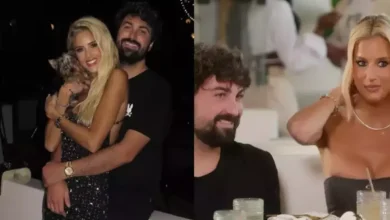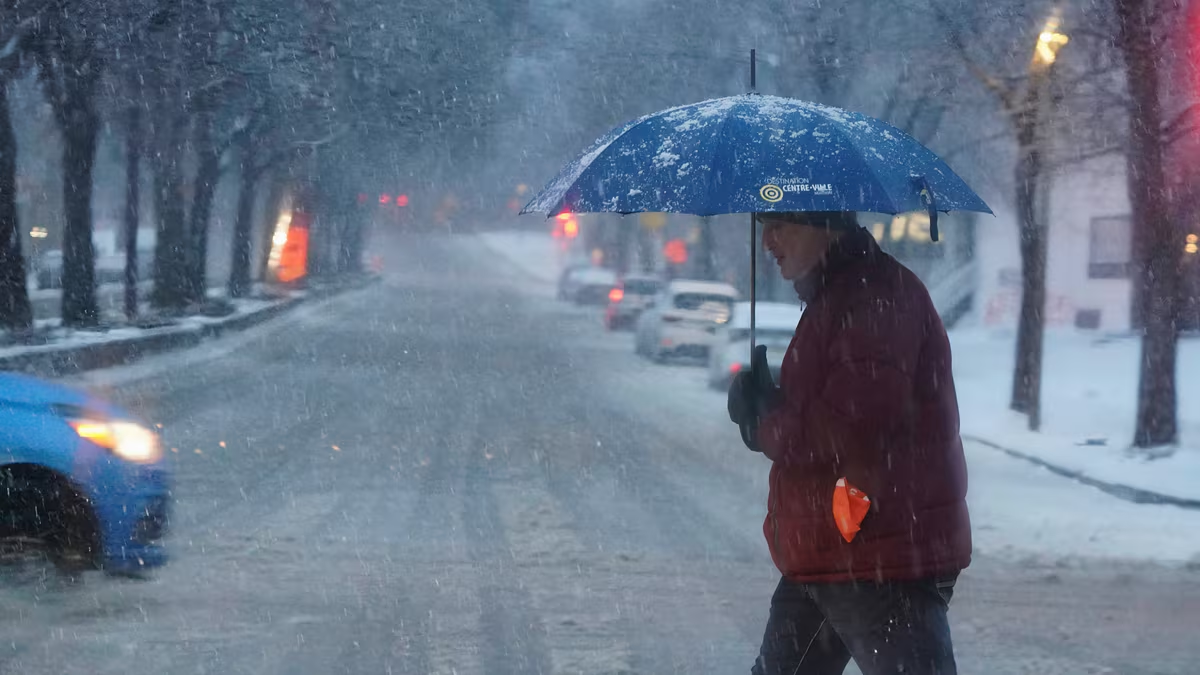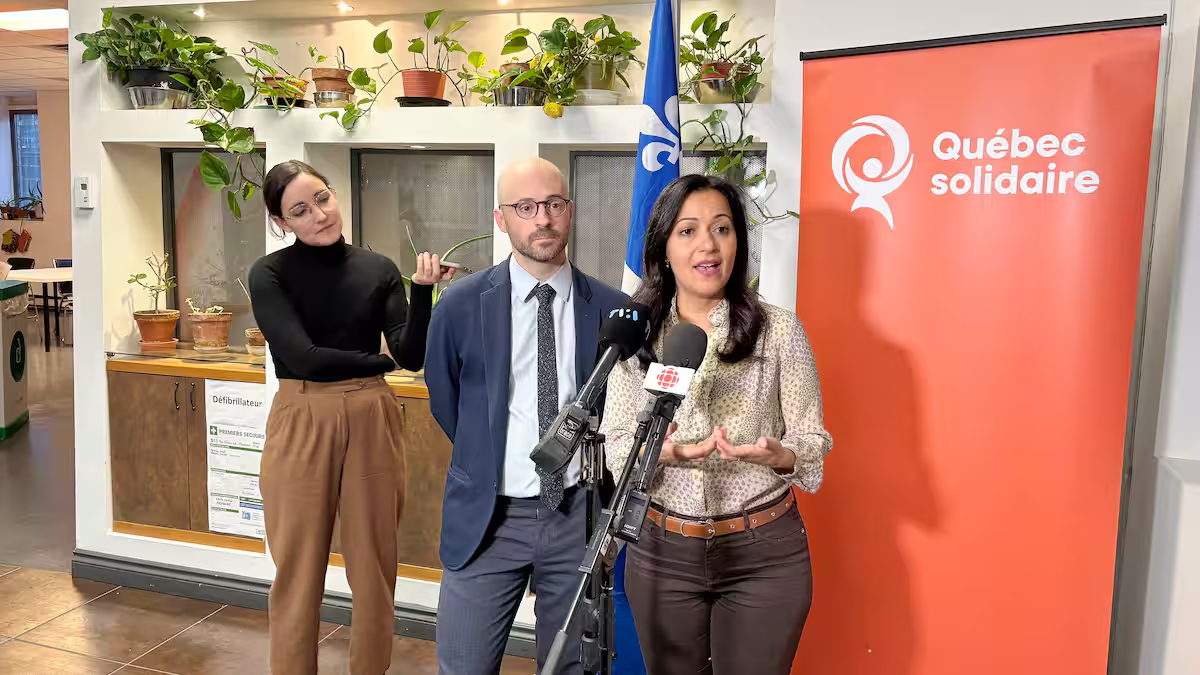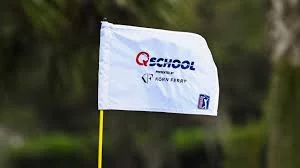Trump-favored prosecutor admits she didn’t present final Comey indictment to grand jury
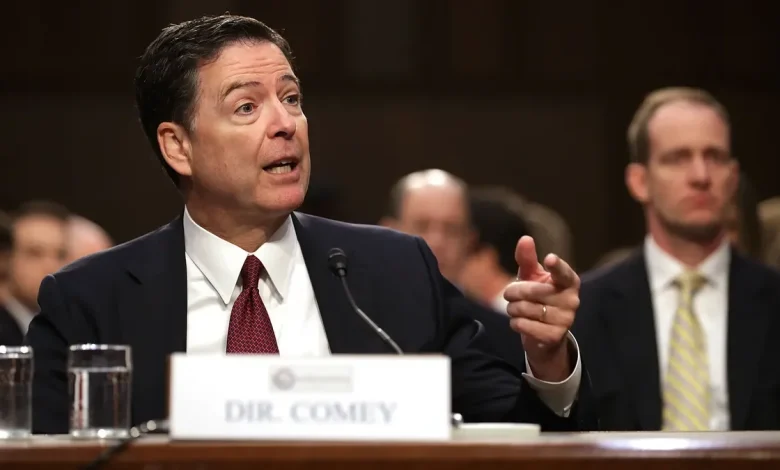
Former FBI director James Comey pleads not guilty to lying to Congress
Former FBI director James Comey pleads not guilty to charges of lying to Congress and obstruction in Alexandria, Virginia.
ALEXANDRIA, VA – Before a packed courtroom, former FBI Director James Comey sat stoically as the lawyer Trump and his attorney general tapped to head the office investigating Comey admitted she neglected to present the final version of the indictment he now faces to a full grand jury.
The Nov. 19 hearing was largely focused on a different issue: Comey’s argument that he is being vindictively prosecuted at the behest of the president, and the charges should therefore be thrown out. But the admission from Lindsey Halligan, a former personal lawyer to Trump, who had never been a prosecutor before her appointment in late September, threw an added wrench into the case.
Halligan said the grand jury foreperson and one other grand juror were present when the final version of the indictment was signed. Another prosecutor, Tyler Lemons, earlier said the grand jury rejected one of three counts on an initial indictment, and the indictment was then rewritten to include only the two counts the grand jury voted to approve.
U.S. District Judge Michael Nachmanoff, who was appointed by former President Joe Biden, indicated that he sees the issue as potentially crucial, telling Halligan he wanted to “make sure” the current indictment wasn’t presented to the full grand jury. When Halligan didn’t respond – seeming to offer no contradiction – the judge told her she could sit back down.
Michael Dreeben, a lawyer for Comey, later capitalized on the exchange, saying this means there is no valid indictment in the case. He argued that the legal deadline for bringing an indictment expired at the end of September, and so the case should be permanently dismissed.
Comey, a longtime critic of the president, is accused of telling senators he didn’t authorize an anonymous leak of information to the media, knowing that statement was false. Within hours of his indictment, he publicly declared his innocence and vowed to fight the charges.
Trump involved in Comey prosecution?
From the bench of his polished Alexandria courtroom, Nachmanoff didn’t rule on whether to throw out the case, saying the issues were “too weighty and too complex” for a same-day decision. However, his questions during the hearing signaled he’s not just concerned with the validity of the indictment, but also with whether Trump’s own statements may demonstrate the case was unlawfully politicized.
Nachmanoff quoted the president as telling reporters, “They’re guilty, they’re not guilty. We have to act fast,” soon after he posted on social media Sept. 20 that Comey and two other targets were “all guilty as hell” and delay was not an option. Comey was indicted by a federal grand jury five days later on charges that he lied to Congress and obstructed a congressional proceeding when he testified before a Senate committee in 2020.
The charges against Comey followed a series of events that have fueled outcries that Trump is improperly politicizing the Justice Department.
First, the former head of the U.S. Attorney’s Office for the Eastern District of Virginia, Erik Siebert, left his role in September after reportedly expressing skepticism about bringing charges against Comey. Siebert told colleagues in an email that he had resigned, although Trump later said he fired him.
Soon after, in a Sept. 20 social media post, Trump declared that Comey was “guilty as hell” and delay was not an option. In fact, prosecutors had less than two weeks remaining before a legal deadline to seek charges against Comey was set to expire.
In that same post, addressed to Attorney General Pam Bondi, Trump praised Lindsey Halligan, his former personal lawyer. Bondi quickly appointed Halligan to fill Siebert’s high-ranking position, even though Halligan had never served as a prosecutor before. She secured an indictment against Comey within a handful of days – and just days before the legal deadline.
Comey, through his lawyers, has highlighted many of those events in arguing that the case is vindictive.
“In the hierarchy, the president stands at the top,” Dreeben said at the Nov. 19 hearing. “He has, in effect, substituted himself for the U.S. attorney as the decision maker.”
Arguing for the government, Lemons told the judge there’s no evidence that Halligan didn’t make the decision to prosecute – only innuendo.
“It was her decision, and her decision only,” Lemons said.
Judge questions whether indictment secured by newbie prosecutor is valid
After hearing robust arguments about the potential vindictiveness of the case, Nachmanoff shifted to questioning whether Halligan had even secured a legitimate indictment.
His questions came two days after a magistrate judge appointed to handle some issues within the case wrote that his review of case records “points to a disturbing pattern of profound investigative missteps, missteps that led an FBI agent and a prosecutor to potentially undermine the integrity of the grand jury proceeding.”
That judge said the potential irregularities may end up justifying throwing the case out.
At one point, Nachmanoff reminded Halligan that she, who – unlike Lemons – was at the grand jury proceedings, was permitted to speak herself.
Halligan then came to the podium and said the grand jury foreperson and another grand juror were present when the current indictment was signed.
When Nachmanoff responded that he just wanted to confirm that the current indictment was not presented to the entire grand jury, Halligan didn’t reply. The judge then told her she could sit down.
Dreeben, Comey’s lawyer, later returned to the podium and told the judge there is no valid indictment as a result of the prosecution’s failure to present the second version to the full grand jury. Because the legal deadline for bringing an indictment against Comey has now passed, that’s the end of the case, Dreeben argued.
Comey’s alternative arguments to get case tossed
Comey also says the case should be tossed out because it is a “selective” prosecution that is targeting him for exercising his free speech rights. His legal team is expected to argue in court on Nov. 19 that other former Trump administration officials have faced more credible allegations of misleading Congress than he faces, yet only he was charged.
Government lawyers have said the comparisons Comey has raised aren’t similar to the facts in his case because he allegedly was testifying to Congress about his official conduct as the head of an executive agency.
Comey’s “vindictive” and “selective” prosecution arguments aren’t the only reason the case could be tossed out. Comey has also challenged the lawfulness of Halligan’s appointment, and a separate judge appointed to handle some issues in the case said in a Nov. 17 opinion that a host of potential irregularities in the grand jury process that led to the indictment could be grounds to dismiss the case.
This article has been updated to add new information.

